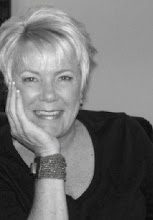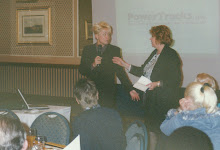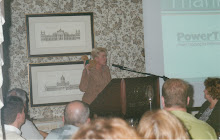I love car analogies when it comes to discussing personal competencies and career planning; the Formula One race car driver versus the driver of a Buick is one of my all-time favorites. We’ll discuss that some other time, but today, and seemingly more apropos for what’s going on out there, is a look at blindspots and, more importantly, how to avoid them.
You’re driving along, everything is just swell, but something going on up ahead alerts you to the need to change lanes. You cautiously check the left and right mirrors, even look over your shoulders, and hit your change signal (we hope) before making your move. Your car glides over. A screeching blare of a horn snaps you back into your lane. Where did they come from?, you demand to know. You calm yourself as you retreat, waiting for your next opportunity to make a move.
You’ve just experienced a blindspot, an area that was occupied by something you just did not see and prevented you from making your move. Careers are also fraught with blindspots though, in many cases, they are self-created, producing obstacles that prevent us from moving over or getting ahead. How do you decrease blindspots? The short answer: Better self-awareness.
The Johari Window Model is a good place to start in learning how to illuminate your blindspots. From, Businessballs.com, like a four-paned “window”, the Johari Window Model is comprised of the following:
1. What is known by the person about him/herself and is also known by others - open area, open self, free area, free self, or 'the arena'
2. What is unknown by the person about him/herself but which others know - blind area, blind self, or 'blindspot'
3. What the person knows about him/herself that others do not know - hidden area, hidden self, avoided area, avoided self or 'facade'
4. What is unknown by the person about him/herself and is also unknown by others - unknown area or unknown self
Let’s say you have not been very successful in landing the right job. You’ve been on a few interviews, the interviewers were pleasant and encouraging, you possess all the necessary skills, yet there’s not been any offer. You might just be operating in a blindspot, where the interviewers are seeing something you don’t. A good way to uncover your blindspots is to ask a friend or relative for an objective assessment of your interviewing style. Role-play. Behave as you would in an interview. Attempt to break the ice, establish rapport, or not, present your qualifications, ask questions about the job … anything you would ordinarily do in an interview. You may come to find that your nervousness overshadows your ability to discuss your accomplishments, perhaps you laugh at inappropriate times, or your questions reveal you have not done much research on the hiring organization. I once interviewed a young woman who, upon entering my office, plopped her handbag directly on top of my desk, followed by an attitude of arrogance. I don’t recall the specifics of her work capabilities but I certainly remember that handbag on my desk; that, and that she was not offered the job.
Executive Onboarding Note: The Importance Of The Confidence To Be Open To
Help
-
While executive onboarding, get help. If it’s offered, take it. If it’s not
offered, find it.
The post Executive Onboarding Note: The Importance Of The C...
7 years ago



